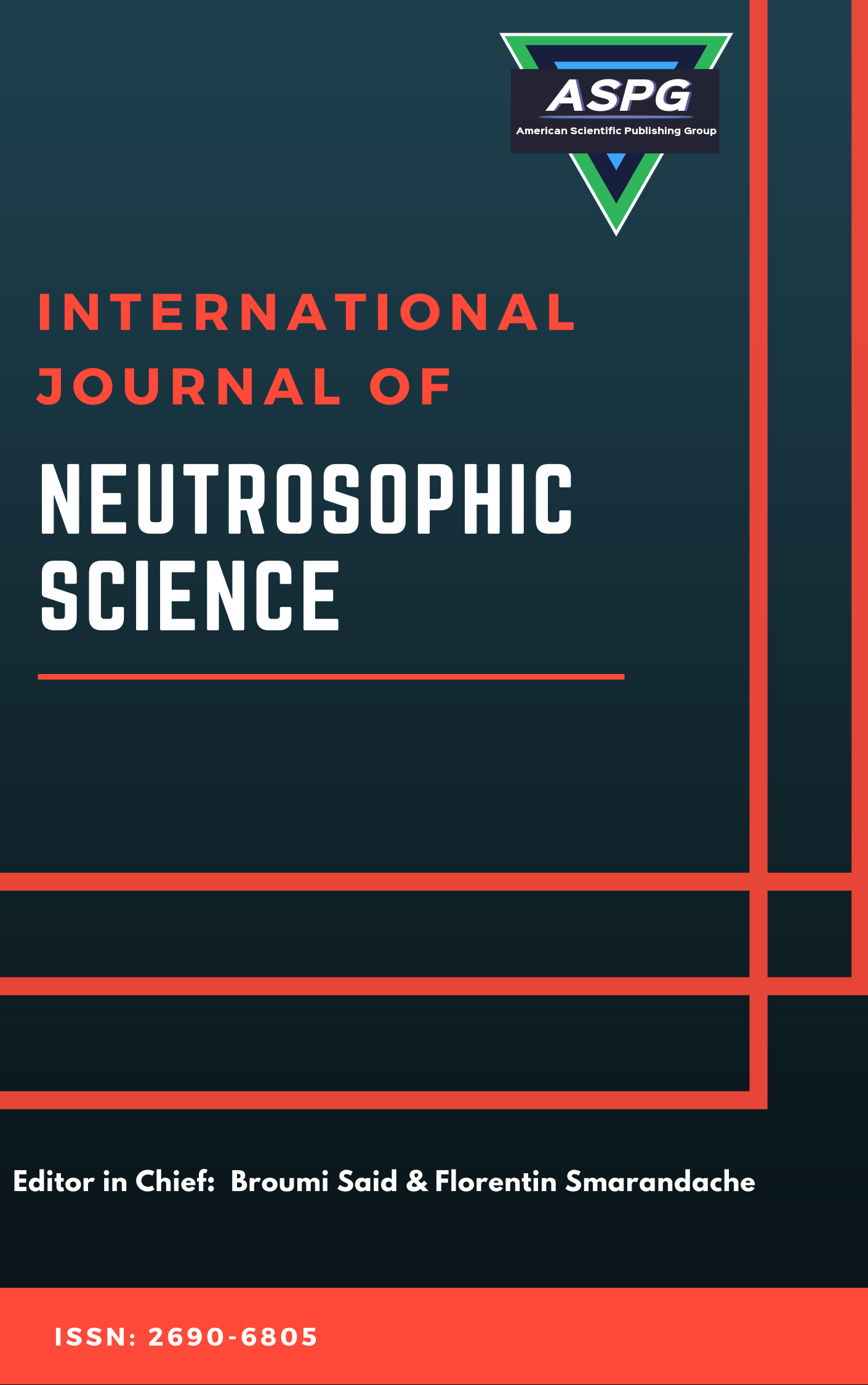

Volume 18 , Issue 4 , PP: 143-150, 2022 | Cite this article as | XML | Html | PDF | Full Length Article
Mónica I. M.Verdezoto 1 * , Alex F.S.Moreno 2 , Pablo M.V. Acosta 3
Doi: https://doi.org/10.54216/IJNS.180413
The extenuating circumstances are a vital element allowing the reduction of the penalty for the committed crime. However, despite being regulated, they present certain inconsistencies in their application since it directly impacts the demonstration or not of the legal materiality of the offense and the accused's responsibility. Today in Ecuador, a situation of inapplicability persists in different parts of the country for which it is decided to carry out the present investigation. The objective is to study the main causes of the tendency to non-application of extenuating circumstances. For this, the work authors rely on the Torgerson method and single-valued neutrosophic numbers due to the facilities they offer for this type of analysis.Finally, to finish the work, possible solutions to mitigate the phenomenon analyzed are enunciated.
extenuating circumstances , inapplicability , Torgerson , SVNN
[1] E. P. Araujo Escobar, Cisneros Zuniga, C.P., Hidalgo Ruiz, M.R, "Conceptual mapping as a
tool for understanding the need for criminalization of assault with chemicals," Universidad Y
Sociedad, vol. 12 (6), pp. 421-427, 2020.
[2] A. C. Gavilánez-Becerra, "Mechanism for application of aggravating and mitigating factors
subject to the principle of proporcionality in the Ecuadorian penal system," Bachelor´s
Thesis, Pontificia Universidad Católica del Ecuador, Quito, Ecuador, 2020.
[3] L. A. Herrera Cela, "The lack of applicability of penalties to legal persons in the
comprehensive criminal organic code," Bachelor Thesis, Universidad de las Américas, Quito,
Ecuador, 2017.
[4] G. N. Segovia-Naranjo, "Retional compensation in the assessment of mitigating and
aggravating circumstances in the application of the sentence according to the COIP,"
Bachelor´s Thesis, Pontificia Universidad Católica del Ecuador,, Quito, Ecuador, 2017.
[5] P. M. P. Bimos, "The problems in the criminal prosecution of legal entity´s in Ecuador,"
REIB: Revista Electrónica Iberoamericana,, vol. 11, pp. 88-100, 2017.
[6] Mancia G and G. G, "Mechanisms and Clinical Implications of Blood Pressure Variability,"
presented at the 2nd Virtual Congress of Cardiology Argentine Federation of Cardiology.
[7] L. E. Briones-Izquierdo, "Non-observance of the principle of innocence in Ecuador,"
Bachelor´s Thesis, Universidad Católica de Santiago de Guayaquil, Guayaquil, Ecuador,
2019.
[8] C. Kahraman, B. Oztaysi, and S. Cevik Onar, "Single & interval-valued neutrosophic AHP
methods: Performance analysis of outsourcing law firms," Journal of Intelligent & Fuzzy
Systems,, vol. 38, pp. 749-759, 2020.
[9] F. Smarandache, "Neutrosophic social structures specificities," Social sciences and education
research review,, vol. 2, pp. 3-10, 2015.
[10] J. E. Ricardo, Z. M. M. Rosado, E. K. C. Pataron, and V. Y. V. Vargas, "Measuring legal and
socioeconomic effect of the declared debtors usign the ahp technique in a neutrosophic
framework," Neutrosophic Sets and Systems,, vol. 44, pp. 357-366, 2021.
[11] W. E. C. Núñez, P. A. C. Maldonado, D. X. C. Valencia, D. S. A. Ibarra, and A. R. S. León,
"Neutrosophy to Enrich Legal Opinion Mining," Neutrosophic Sets and Systems,, vol. 44, pp.
315-323, 2021.
[12] D. C. Valencia, T. D. J. M. Gutierrez, L. H. B. Garcia, and A. A. C. Posso, "Cased-based
reasoning and neutrosophic logic to identify the employment limitations for Law school
graduates at UNIANDES Ibarra," Neutrosophic Sets and Systems,, vol. 26, pp. 82-90, 2019.
[13] S. A. R. Portilla, V. H. L. Salcedo, and R. M. C. Gilberto, "Neutrosophic Estimation to
validate a Legal Argument about the Use of Congruous Alimony as a Family Burden on
Child Support Determination Trials," Neutrosophic Sets and Systems,, vol. 37, pp. 323-329,
2020.
[14] F. Smarandache, Neutrosophy, a new Branch of Philosophy: Infinite Study, 2002.
[15] A. Sleem, M. Abdel-Baset, and I. El-henawy, "PyIVNS: A python based tool for Intervalvalued
neutrosophic operations and normalization," SoftwareX,, vol. 12, p. 100632, 2020.
[16] F. Smarandache, M. A. Quiroz-Martínez, J. E. Ricardo, N. B. Hernández, and M. Y. L.
Vázquez, "Application of neutrosophic offsets for digital image processing," Investigacion
Operacional, vol. 41, pp. 603-611, 2020.
[17] J. L. Salmeron and F. Smarandache, "Redesigning Decision Matrix Method with an
indeterminacy-based inference process," in Multispace and Multistructure. Neutrosophic
Transdisciplinarity (100 Collected Papers of Sciences). vol. 4, ed, 2010.
[18] H. Wang, F. Smarandache, Y. Zhang, and R. Sunderraman, Single valued neutrosophic sets:
Infinite study, 2010.
[19] H. L. Huang, "New distance measure of single-valued neutrosophic sets and its application,"
International Journal of Intelligent Systems,, vol. 31, pp. 1021-1032, 2016.
[20] G. Shahzadi, M. Akram, and A. B. Saeid, "An application of single-valued neutrosophic sets
in medical diagnosis," Neutrosophic sets and systems,, vol. 18, pp. 80-88, 2017.
[21] F. Smarandache, M. Abdel-Basset, and S. Broumi, Eds., Neutrosophic Sets and Systems, vol.
40, 2021. Infinite Study, 2021, p.^pp. Pages.
[22] M. Saqlain, N. Jafar, S. Moin, M. Saeed, and S. Broumi, "Single and multi-valued
neutrosophic hypersoft set and tangent similarity measure of single valued neutrosophic
hypersoft sets," Neutrosophic Sets and Systems,, vol. 32, pp. 317-329, 2020.
[23] M. Cadena, M. Burgos, and M. Montenegro, "Neutrosophic Case-Based Reasoning Method
to Determine the Profitability of the Tourism Sector in the City of Riobamba," Neutrosophic
Sets and Systems,, vol. 37, p. 1-13, 2020.
[24] J. L. R. Villafuerte, L. D. T. Torres, and L. T. Jimenez, "Neutrosophic Hypothesis to validate
a modification for Article 630 of the Integral Organic Criminal Code of Ecuador,"
Neutrosophic Sets and Systems,, vol. 37, 25-31, 2020.
[25] M. Leyva-Vázquez, M. A. Quiroz-Martínez, Y. Portilla-Castell, J. R. Hechavarría-
Hernández, and E. González-Caballero, "A new model for the selection of information
technology project in a neutrosophic environment," Neutrosophic Sets and Systems,, vol. 32,
p. 32-37, 2020.
[26] V. López-Morales, "Multiple Criteria Decision-Making in Heterogeneous Groups of
Management Experts," Information,, vol. 9, pp. 32-37, 2018.
[27] P. Biswas, S. Pramanik, and B. C. Giri, "TOPSIS method for multi-attribute group decisionmaking
under single-valued neutrosophic environment," Neural computing and
Applications,, vol. 27, pp. 727-737, 2016.